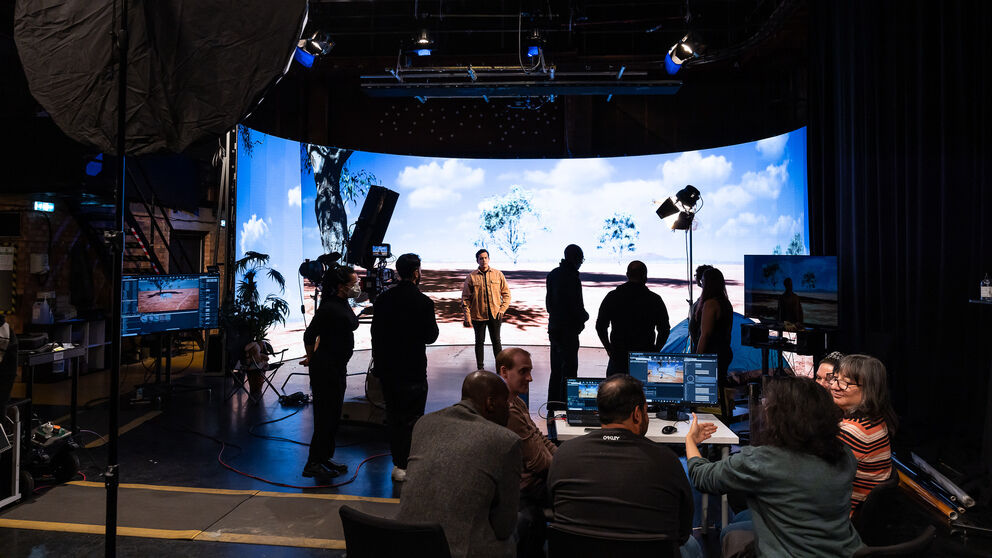The combination of Unreal Engine and LED volume stages has taken virtual production to another level, but have skillsets kept pace? IBC365 learns more about the UK’s first dedicated certificate in virtual production.
The use of CGI in film and television production has moved from being a long, slow process undertaken in the postproduction stage involving shooting in greenscreen studios and actors emoting to a ‘tennis ball on a stick’ to an interactive environment that allows performers, directors, and cinematographers to see and move through computer generated environments in real-time. Alan Thorn, a video games industry veteran runs the Virtual Production Course at the National Film and Television School (NFTS) in the UK. The course offers the industry’s first dedicated certificate in Virtual Production.
Virtual production (VP) merges real-time CGI with traditional filmmaking techniques using giant LED walls and systems originally designed for use in video games such as Unreal Engine, to create immersive environments that seamlessly blend the physical and digital worlds. As Thorn explains, the industry is in need of professionals who can navigate this complex, hybrid landscape...
You are not signed in
Only registered users can read the rest of this article.
Vertical dramas: Market disruptor or passing fancy?
As studios begin to embrace the potential of vertical micro-dramas, should their rise be dismissed as merely a fad or a profound shift in the production, consumption and gender-bias of global storytelling?

ISE 2026: Thriving on an integrated identity
A show that mixes a vast number of different business areas shouldn’t work, but it does because the underlying technology is finally integrated.

Winter Wonderland: All the tech at the Milano Cortina Olympics
Between first-person-view drones, expanded real-time 360° replays, and a massive virtualised production setup, Milano Cortina 2026 is set to be a major step forward in immersive, scalable, and sustainable Olympic broadcasting.

Creator. Experience. Streaming: The new economies of broadcast AV
As brands, corporates, and creators claim their stake in the content landscape, the boundaries between broadcast and professional AV are dissolving. No longer just a convergence, the broadcast AV landscape is now shaped by new economies of creation, experience, and streaming.

AI and the media revolution: A look ahead to 2026
January has only just come to an end, but we are already looking ahead to the next IBC, which takes place as usual at the Amsterdam RAI in September. In the meantime, Content Everywhere companies are polishing their crystal balls and making predictions about what might lie ahead for the video and streaming industry during the next 12 months.





